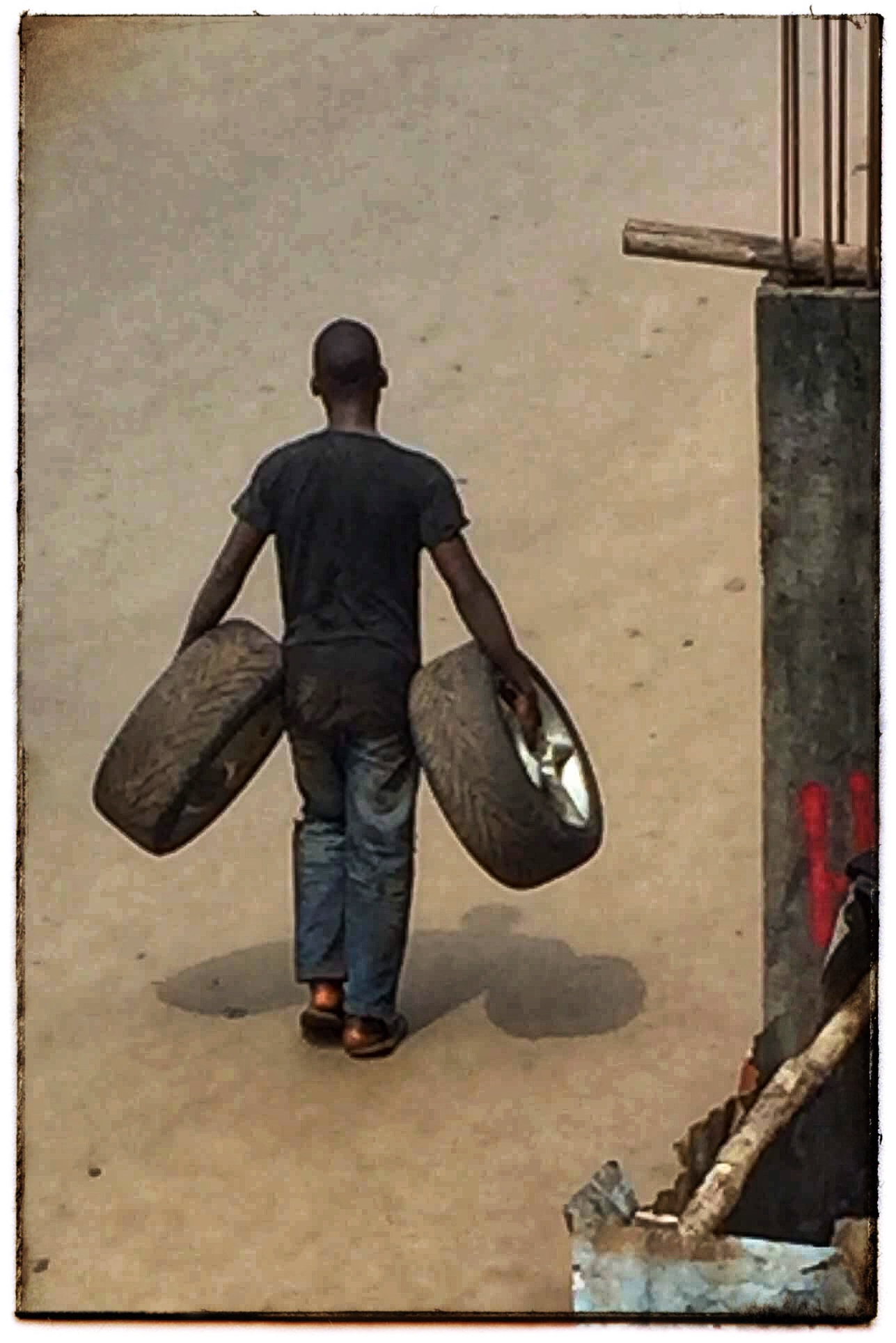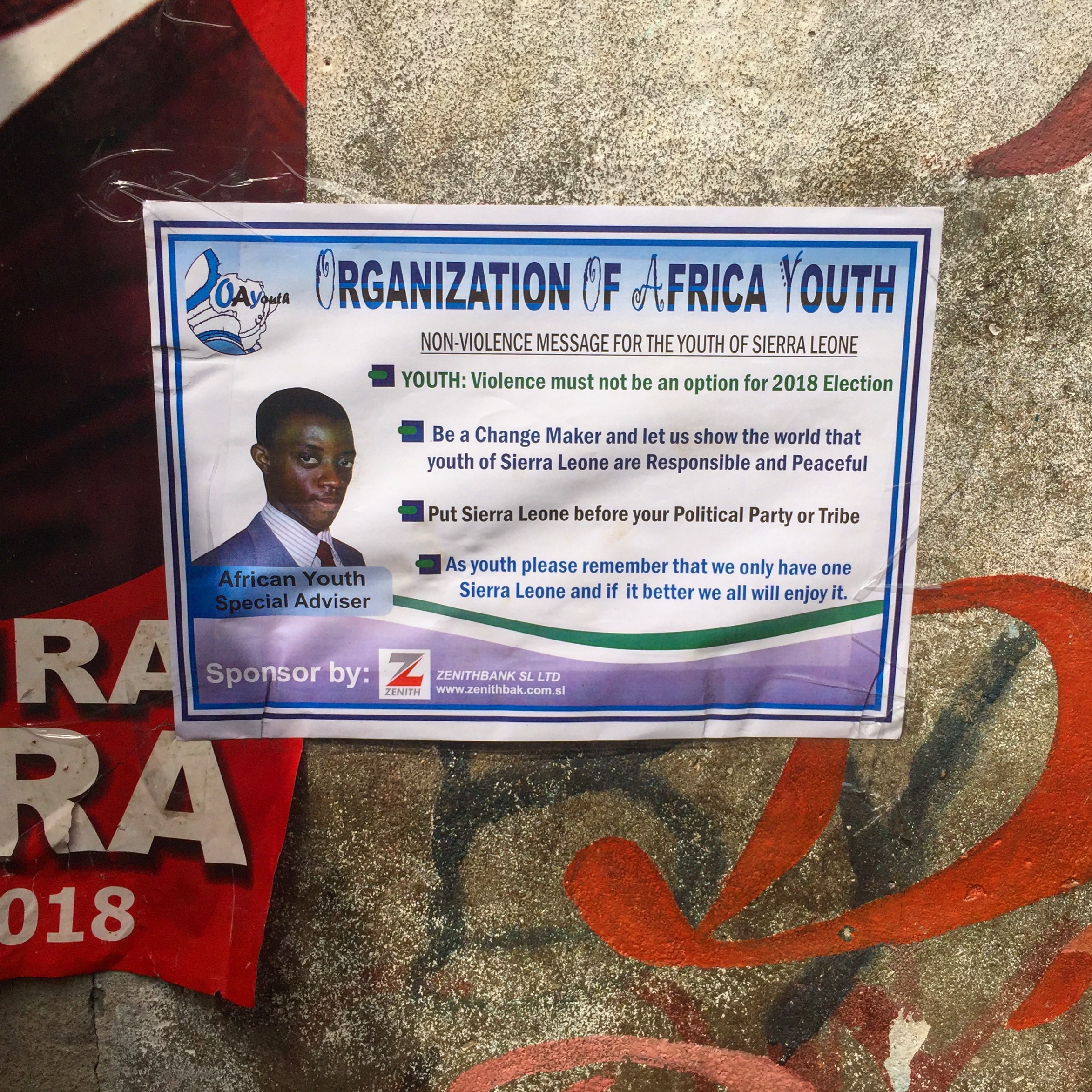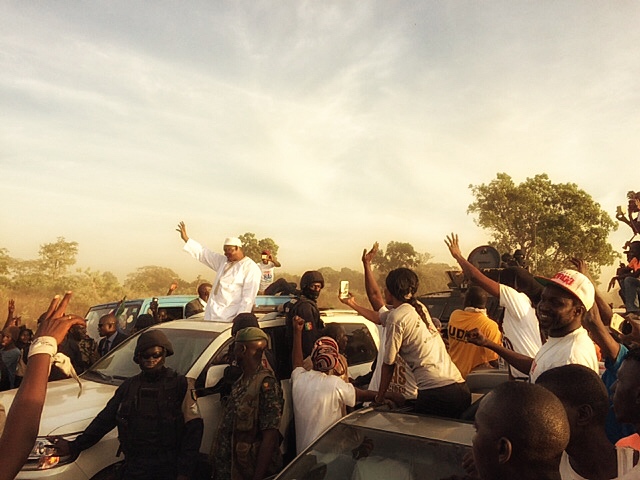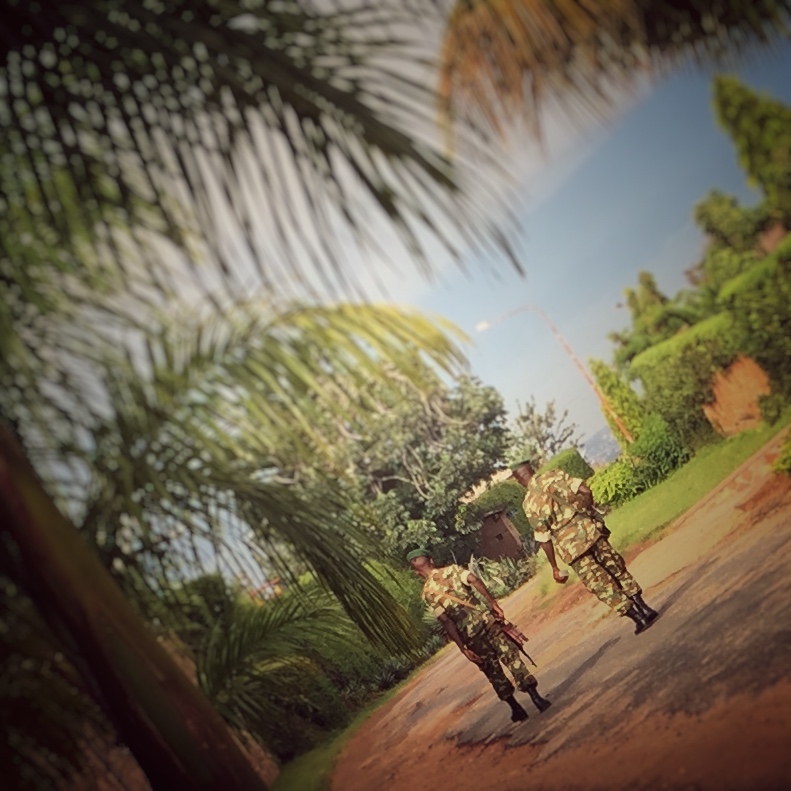
The red party. APC political rally in Freetown
Congosa in Krio means gossiping and spreading rumour, but its connotations are much darker than in English. It equals with name spoiling. In a society where attack against somebody’s public image can meet mundane as well as occult retaliation, gossiping is considered as the antisocial behaviour par excellence. However, although unanimously condemned, congosa is omnipresent and is an essential part of public life. Friends, as well as strangers constantly share, comment and analyse stories of uncertain origin in a sort of collective jubilation. Rumours are much more than stories circulating without signature with questionable truth content. Because they are often the expressions of mistrust, doubts and alternative hypotheses challenging – while evoking – the moral order of a society, they touch upon the political, everywhere. But in Sierra Leone the political and the rumour are probably even more tightly knit together, in a way that congosa and politics become inseparable. Commenting on a previous Sierra Leonean election (that of 1986, still within the one party system) Mariane Ferme notes: “only through the careful and sometimes unpredictable management of rumours of secrete gathering and strategies can the abuses of the electoral system be kept in check” (Ferme 1999:161). Continue reading
 Sierra Leone has a new president. And despite being challenged prior to the elections, the two party-system dominated once again. After two five-year terms under Ernest Bai Koroma of All Peoples Congress (APC), the second giant, the Sierra Leone Peoples Party (SLPP), takes over again. Julius Maada Wonie Bio of SLPP defeated APC’s Samura Kamara by gaining 51.8% of the vote in the runoff on March 31, 2018.
Sierra Leone has a new president. And despite being challenged prior to the elections, the two party-system dominated once again. After two five-year terms under Ernest Bai Koroma of All Peoples Congress (APC), the second giant, the Sierra Leone Peoples Party (SLPP), takes over again. Julius Maada Wonie Bio of SLPP defeated APC’s Samura Kamara by gaining 51.8% of the vote in the runoff on March 31, 2018.

